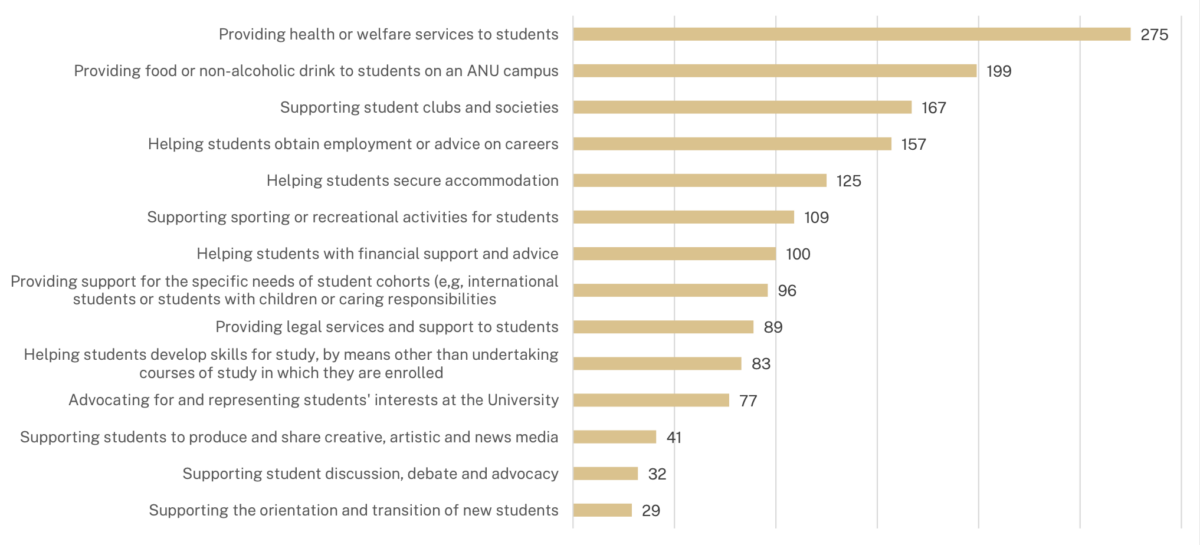Every year ANU students pay between $182 and $351 on top of their course fees as part of their Student Services and Amenities Fee (SSAF). The university allocates this money between itself and various student bodies. ANUSA receives the highest allocation, but ANU Sport, Woroni and ANU Observer are also recipients of SSAF.
Over the course of the recent ANUSA elections, various tickets have spruiked policies for how they would spend ANUSA’s ~$3.3 million allocation. But in week 6 and 7, the ANU itself sent a survey to student emails asking how they would like to see SSAF fees spent.
This year, 684 students responded to the survey, down from last year’s 703. The vast majority of respondents were domestic off-campus students. The university noted that this sample amounted to 2.3% of the student body and was, therefore, “not a representative sample”.
93% of respondents to the relevant question said that they were aware of SSAF, but only 64% said that they understood what it was used for.
Asked to select three priorities from a list of nineteen, students ranked “health and welfare”, “providing food and non-alcoholic drink”, and “clubs and societies” as their top three priorities.
The bottom three were “supporting … student media”, “supporting student discussion, debate and advocacy”, and “supporting the orientation … of new students”.

180 students responded to the open text portion of the survey. 40 respondents (22%) expressed support for more health services and 20 (11%) expressed support for more subsidised food and meals.
The university noted that, in the open text fields, about 10% of respondents (68) expressed “a strong displeasure” with ANUSA “with the sentiment [that ANUSA focuses] more on political causes and protests, than providing services”.
Despite this increase in “displeasure” with ANUSA, the university noted that 79% of respondents said that they “value” the services and activities funded by SSAF.
The university is currently negotiating the 2025 SSAF allocations against the backdrop of a $200 million deficit in its books accrued from 2020. Final allocations will be determined by the end of the year.
We acknowledge the Ngunnawal and Ngambri people, who are the Traditional Custodians of the land on which Woroni, Woroni Radio and Woroni TV are created, edited, published, printed and distributed. We pay our respects to Elders past and present. We acknowledge that the name Woroni was taken from the Wadi Wadi Nation without permission, and we are striving to do better for future reconciliation.
